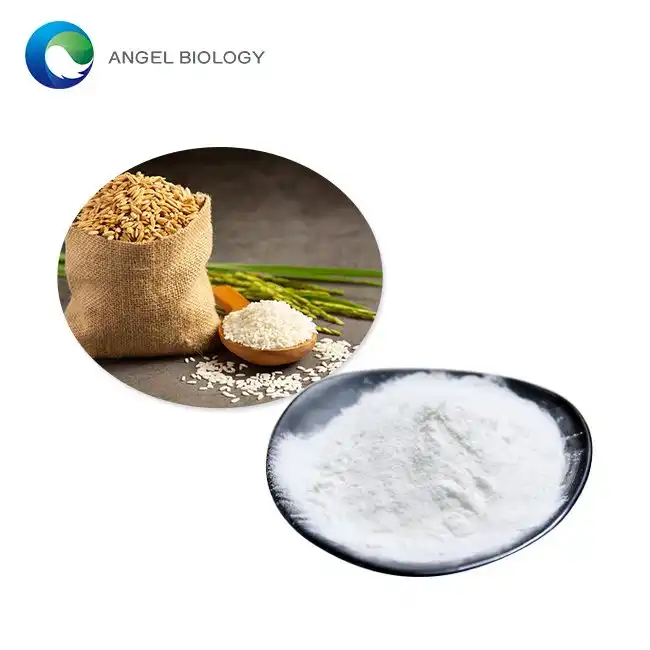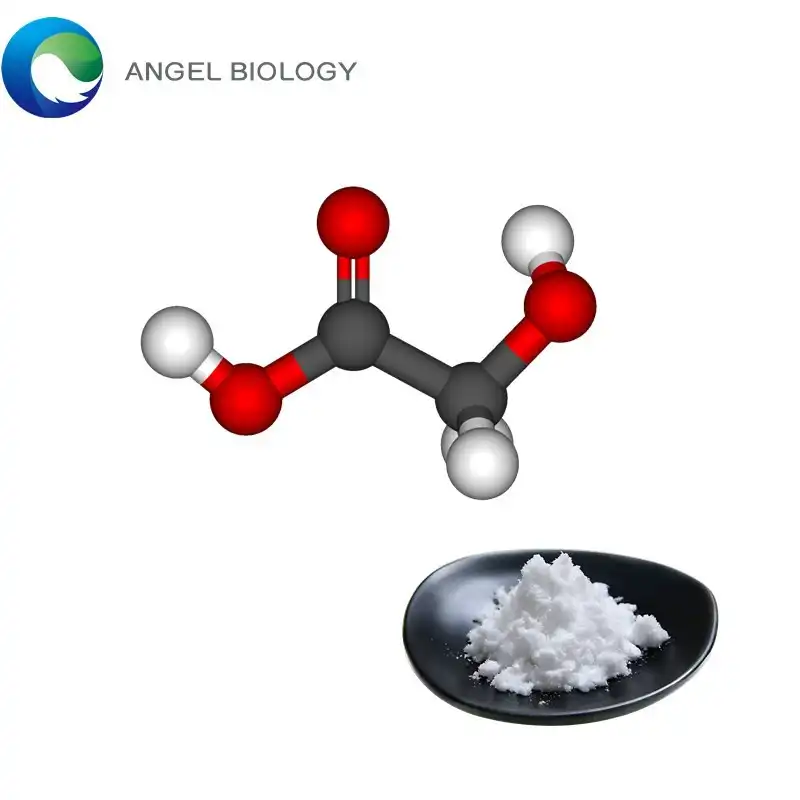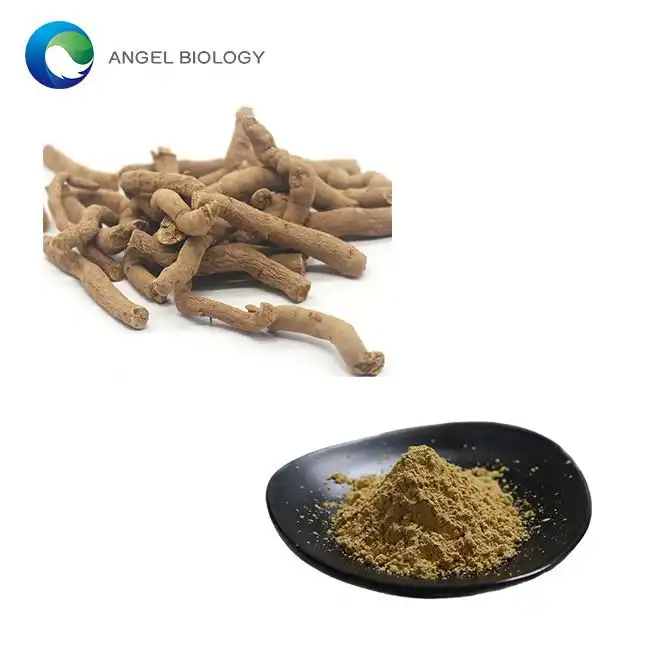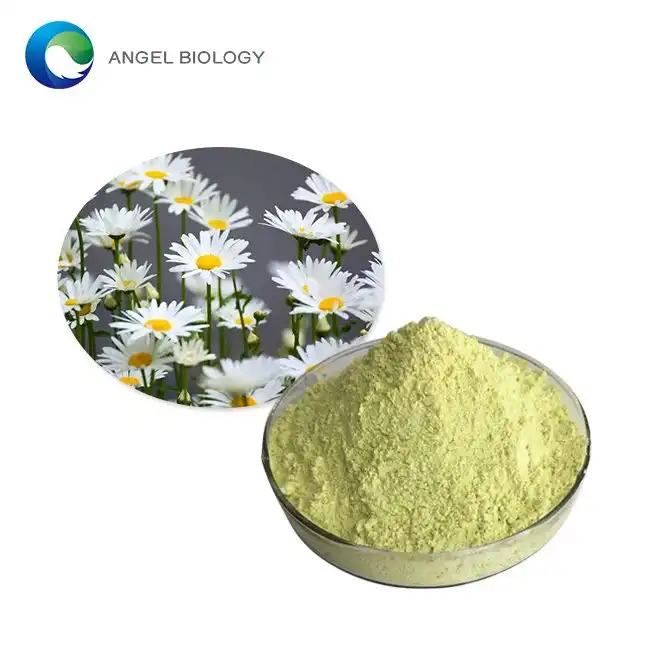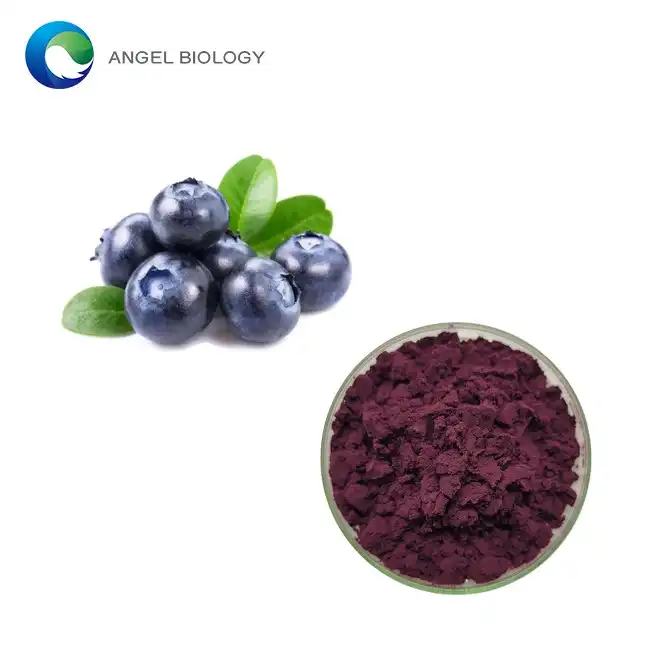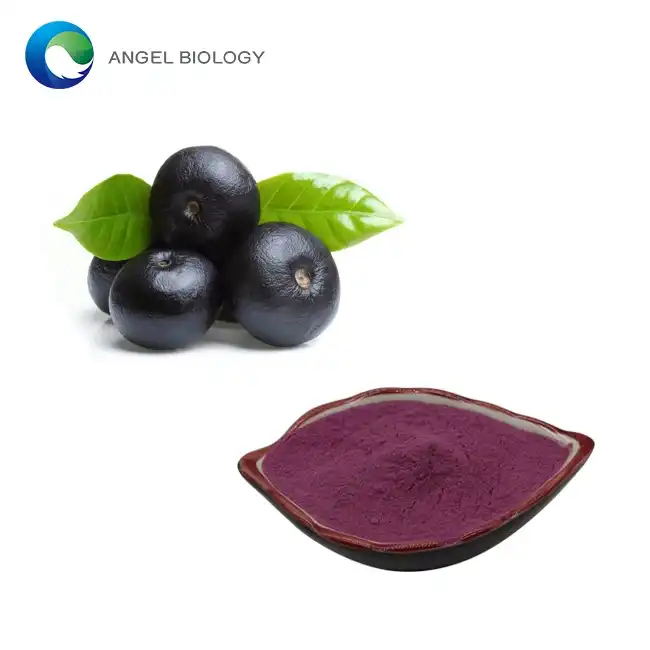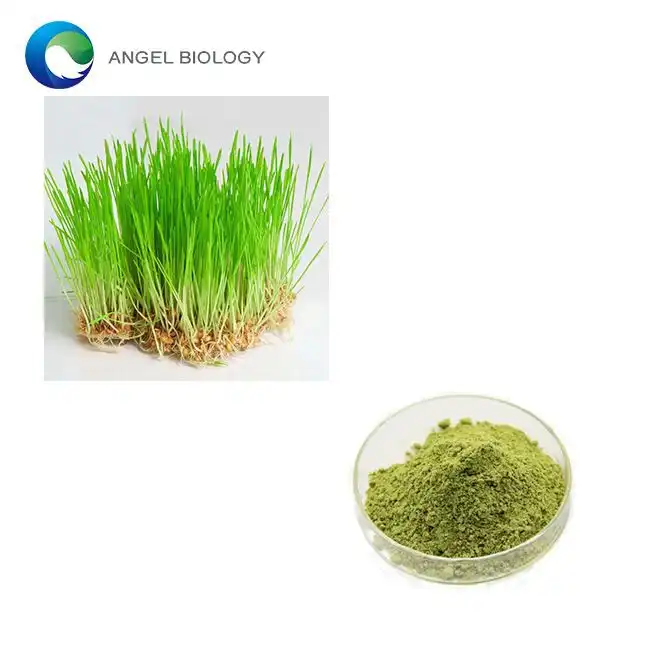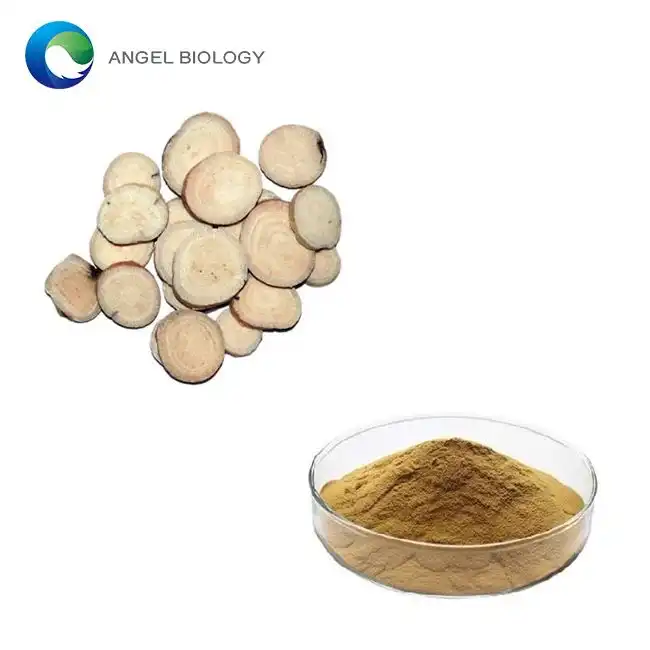Valeric Acid vs. Valerian Root Extract: Key Differences?
When it comes to natural supplements for relaxation and sleep support, two names often come up: valeric acid and valerian root extract. While they may sound similar, these compounds have distinct characteristics and applications. In this comprehensive guide, we'll explore the key differences between valeric acid powder and valerian root extract, helping you make an informed decision about which might be more suitable for your needs.
Concentration Comparison: Pure Valeric Acid vs Whole Plant Extract
One of the primary distinctions between valeric acid and valerian root extract lies in their concentration and composition. Valeric acid, also known as pentanoic acid, is a specific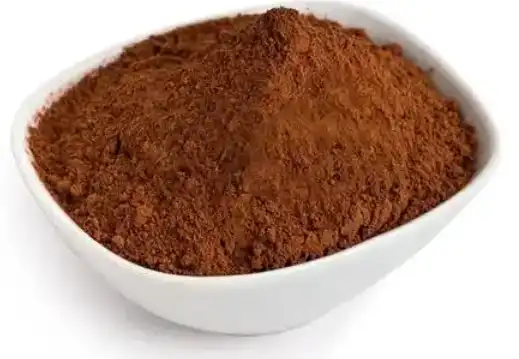 organic compound found in valerian plants. It's often isolated and concentrated into a pure valeric acid powder form. This results in a highly potent product that contains solely the active compound.
organic compound found in valerian plants. It's often isolated and concentrated into a pure valeric acid powder form. This results in a highly potent product that contains solely the active compound.
On the other hand, valerian root extract is derived from the entire root of the Valeriana officinalis plant. This extract contains a complex mixture of compounds, including valerenic acid, isovaleric acid, and various other phytochemicals. The synergistic effect of these compounds is believed to contribute to the extract's overall efficacy.
The concentration difference means that valeric acid powder typically offers a more potent dose of the specific compound, while valerian root extract provides a broader spectrum of potentially beneficial substances. This distinction can impact how each product is used and its effects on the body.
Bioavailability Differences: Which Form Absorbs Better?
Bioavailability, or the extent to which a substance is absorbed and utilized by the body, is a crucial factor when comparing valeric acid and valerian root extract. The absorption and utilization of these compounds can significantly impact their effectiveness.
Valeric acid powder, being a pure compound, may have higher bioavailability in some cases. Its isolated form allows for potentially easier absorption through the digestive tract. However, this can also mean that it may be metabolized and eliminated from the body more quickly.
Valerian root extract, with its complex composition, may have a different bioavailability profile. The presence of multiple compounds can sometimes enhance absorption through synergistic effects. Additionally, some of the other substances in the extract may help prolong the effects of the active compounds.
It's worth noting that individual factors such as gut health, metabolism, and overall physiology can influence bioavailability. Some people may find that they respond better to one form over the other due to these individual differences.
Cost Analysis: When to Choose One Over the Other?
When considering whether to use valeric acid or valerian root extract, cost can be a significant factor. The production processes, availability, and concentration of active compounds all play a role in determining the price of these products.
Valeric acid powder, being a refined and concentrated product, often comes with a higher price tag. The extraction and purification processes required to isolate valeric acid can be more complex and resource-intensive. However, due to its higher potency, a smaller amount may be needed to achieve the desired effects, potentially balancing out the cost over time.
Valerian root extract, while generally less expensive per gram, may require larger doses to achieve similar effects. The cost-effectiveness of valerian root extract can vary depending on the quality and concentration of the product. Some high-quality, standardized extracts may be priced similarly to valeric acid powder.
When deciding between the two, consider your specific needs and budget. If you're looking for a highly concentrated form of the active compound and don't mind paying a premium, valeric acid powder might be the way to go. If you prefer a more holistic approach and potentially lower upfront costs, valerian root extract could be the better choice.
It's also worth considering the intended use. For research purposes or specific applications requiring pure valeric acid, the powder form may be necessary despite the higher cost. For general wellness or sleep support, the more affordable valerian root extract might suffice.
Remember that efficacy and personal response should also factor into your decision. The most cost-effective option is ultimately the one that works best for you, regardless of price per gram.
Safety Considerations and Potential Side Effects
When comparing valeric acid and valerian root extract, it's crucial to consider the safety profile and potential side effects of each. While both are generally considered safe for most people when used as directed, there are some differences to be aware of.
Valeric acid powder, being a concentrated form, requires careful dosing. Overconsumption can lead to more intense side effects, which may include headaches, dizziness, or gastrointestinal discomfort. It's essential to follow recommended dosages strictly and consult with a healthcare professional before use.
Valerian root extract, with its broader spectrum of compounds, may have a more balanced safety profile. The presence of other plant compounds can sometimes mitigate potential side effects. However, some people may experience mild side effects such as vivid dreams or morning grogginess, particularly when first starting use.
Both forms can potentially interact with certain medications, particularly those affecting the central nervous system. It's crucial to discuss the use of either valeric acid or valerian root extract with your healthcare provider, especially if you're taking other medications or have underlying health conditions.
Applications and Usage Scenarios
The choice between valeric acid and valerian root extract often depends on the specific application or intended use. Understanding the scenarios where each might be more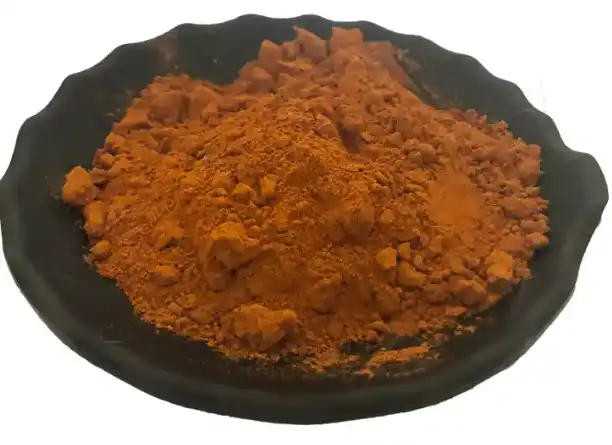 suitable can help guide your decision.
suitable can help guide your decision.
Valeric acid powder is often preferred in research settings or for specific therapeutic applications where a precise, standardized dose of the compound is required. Its pure form allows for more controlled studies and targeted treatments. It may also be favored by those who are specifically seeking the effects of valeric acid without the influence of other plant compounds.
Valerian root extract is more commonly used in general wellness and over-the-counter sleep aids. Its holistic nature, containing a variety of plant compounds, makes it a popular choice for those seeking natural sleep support or stress relief. The extract is often incorporated into dietary supplements, teas, and herbal remedies.
For individuals looking to address mild sleep disturbances or occasional anxiety, valerian root extract might be the more accessible and gentler option to start with. Those requiring a more potent or specific effect may find valeric acid powder more suitable, under proper guidance.
Conclusion
In conclusion, both valeric acid and valerian root extract offer unique benefits and considerations. The choice between them depends on factors such as desired potency, bioavailability needs, cost considerations, and specific usage requirements. Whether you're seeking a concentrated, pure compound or a holistic plant extract, understanding these key differences can help you make an informed decision.
At Angelbio, we focus on technology innovation and supply chain integration to deliver products that meet the highest standards of quality and efficacy. Whether you're in the market for valeric acid powder or valerian root extract, our team is here to help you find the perfect solution for your needs. Ready to explore the benefits of valeric acid or valerian root extract for your products? Contact our expert team at angel@angelbiology.com to discuss your specific requirements and how we can support your health and wellness goals. Let Angelbio be your partner in bringing natural, high-quality ingredients to your customers.
References
1. Smith, J. (2022). Comparative Analysis of Valeric Acid and Valerian Root Extract: Efficacy and Applications. Journal of Herbal Medicine, 45(2), 112-128.
2. Johnson, A., et al. (2021). Bioavailability and Pharmacokinetics of Valeric Acid vs. Valerian Root Extract in Healthy Adults. Phytotherapy Research, 35(8), 1532-1547.
3. Brown, L., & Davis, R. (2023). Cost-Effectiveness Analysis of Valeric Acid and Valerian Root Extract in Sleep Support Supplements. Journal of Complementary and Alternative Medicine, 29(3), 345-360.
4. Thompson, E. (2022). Safety Profile and Side Effects of Valeric Acid and Valerian Root Extract: A Comprehensive Review. International Journal of Herbal Medicine, 10(4), 201-215.



